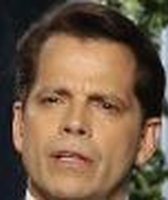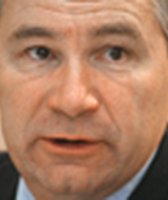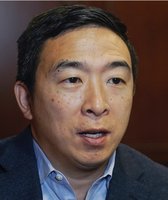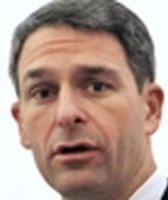Stand up for the facts!
Our only agenda is to publish the truth so you can be an informed participant in democracy.
We need your help.
I would like to contribute
Former national security adviser Michael Flynn pleaded guilty to misleading the FBI about conversations he had with Russia’s ambassador to the United States.
His guilty plea marks an escalation of the special counsel’s probe into Trump campaign ties to Russia, and also corroborates anonymously-sourced media reports about Flynn’s contacts with Russian Ambassador Sergey Kislyak.
Flynn said he is cooperating with Special Counsel Robert Mueller’s investigation, though it's unclear at this stage where his contribution might lead.
In the meantime, however, Flynn’s charging document puts several facts we’ve been tracking on more solid ground:
In the waning days of his presidency, Barack Obama responded on Dec. 29 to Russia’s interference in the U.S. election by issuing sanctions and ejecting 35 Russian diplomats.
Sign up for PolitiFact texts
Two weeks later, as president-elect Donald Trump readied for his inauguration, the Washington Post reported that Flynn and Kislyak had spoken by phone on or around the day sanctions were handed down. (The Post later reported that Flynn had been warned in November that Kislyak’s conversations "were almost certainly being monitored by U.S. intelligence agencies.")
The Flynn-Kislyak conversation raised questions about whether Flynn had undercut Obama’s move against Moscow, particularly after Russian President Vladimir Putin declined to retaliate.
In the days after the Post revealed the Flynn-Kislyak phone call, key members of the Trump transition team, including White House press secretary Sean Spicer, Vice President Mike Pence and White House chief of staff Reince Priebus, denied that sanctions came up during the conversation. Flynn also denied this to the Washington Post.
But Flynn’s guilty plea removes any lingering doubt about whether sanctions figured into his discussion with the Russian ambassador.
The charging document reveals that on or about Dec. 29, Flynn asked Kislyak to "refrain from escalating the situation in response to sanctions that the United States had imposed on Russia that same day." The document also reveals that Kislyak told Flynn that Russia "had chosen to moderate its response to those sanctions as a result of his request." (See the full charging document here.)
Days after Flynn was sworn in as national security adviser, the Wall Street Journal reported on Jan. 22 that he was under investigation, making Flynn the first person in the Trump White House to be named in the probe.
Days later, FBI agents interviewed Flynn and asked whether he had discussed U.S. sanctions against Russia with Kislyak. The Washington Post, citing anonymous current and former U.S. officials, later reported that Flynn had denied the allegation to the FBI during his Jan. 24 interview.
"Lying to the FBI is a felony offense," the Post article stated, a point that now seems prescient.
The special counsel’s charging document gives certainty to the timeline of Flynn’s discussion with the FBI.
"On or about Jan. 24, 2017," the document states, "defendant Michael T. Flynn did willfully and knowingly make materially false, fictitious, and fraudulent statements and representations (...) to agents of the Federal Bureau of Investigation."
Our Sources
United States v. Michael Flynn, Dec. 1, 2017
Washington Post, "First sign of enhanced U.S.-Russia relations under Trump: An invite to Syria talks," Jan. 13, 2017
New York Times, "Obama Strikes Back at Russia for Election Hacking," Dec. 29, 2016
Washington Post, "Flynn was warned by Trump transition officials about contacts with Russian ambassador," May 5, 2017
Washington Post, "Why did Obama dawdle on Russia’s hacking?" Jan. 12, 2017
New York Times, "Vladimir Putin Won’t Expel U.S. Diplomats as Russian Foreign Minister Urged," Dec. 30, 2016


 PolitiFact Rating:
PolitiFact Rating: 

















































